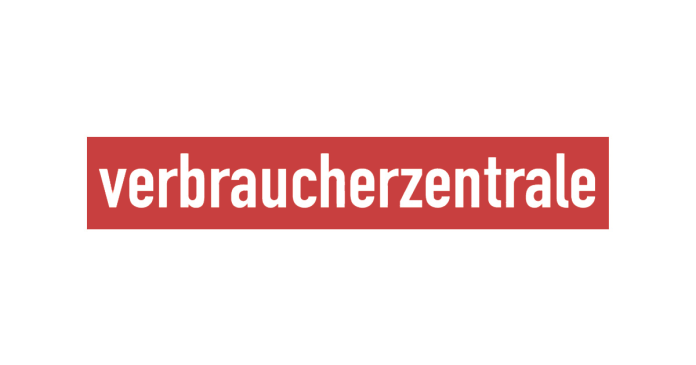There is no general answer to whether a reverse mortgage or annuity is worthwhile. It depends on your individual situation.
Reverse mortgage, life, real estate, donor's pension, reverse mortgage – there are many names for this product. The idea behind it: either property owners sell their property or they mortgage it.
In both cases, the property owners can still continue to live there. Depending on the financing model, the owners receive one One-time paymentone temporary or lifelong pension – and live Rent-free in the property until the end of your life. The property only becomes the property of the buyer (e.g. a credit institution or insurance company) after death, or if necessary when you move out of a retirement home. Or the loan created by the reverse mortgage is paid off by selling the property.
What are the advantages of a reverse mortgage?
Seniors remain owners and still receive benefits money for their property during their lifetime. The payoff is tax free. The reverse mortgage is a loan agreement where, ideally, during your lifetime neither interest nor principal payments must be done. The reverse mortgage enables planning security because all important factors – for example the amount of the pension/one-off payment, interest rate, term – are determined in advance. Selling the property – for example in the event of nursing care – is possible in most cases. The loan is then repaid from the sales proceeds.
![]() If a bank offers you a loan that requires interest and/or repayment to be made from current income during the term, this is the case not around one “real” reverse mortgagebut about one “normal” loanin which the property presumably simply serves as security.
If a bank offers you a loan that requires interest and/or repayment to be made from current income during the term, this is the case not around one “real” reverse mortgagebut about one “normal” loanin which the property presumably simply serves as security.
Also check whether the agreed interest rate applies for the entire term or whether there is only a fixed interest rate for 5 or 10 years.
What are the disadvantages of a reverse mortgage?
- The reverse mortgage is a relative one expensive product. This affects both the interest rate on the loan and the fees incurred.
- In the case of a reverse mortgage that is valid until the end of life, the question of the bank's reinsurance against the risk of a long life would arise – i.e. if the owners live longer than statistically calculated. Such reinsurance makes the construct even more complex and complicated – and is probably one reason why such models have not yet become established and are hardly or not at all available on the market.
- If the offer is only limited in time, the question arises as to what the owners' financial situation will look like at the end of the contractual term.
- The property serves as collateral for the reverse mortgage and can no longer be used as collateral for any other purpose.
- The inheritance is reduced: The heirs receive a property with debts and must either sell the property or repay the loan with other means.
- The owners still have to pay for repairs and renovations themselves.
How much money can you expect for your property?
There is no universal answer here. This is not least because it is just… few offers on the market there and this partly distinguish clearly.
When it comes to credit solutions, there are reverse mortgages, repayment-free loans or even credit lines. Of course, the offer also depends on many factors that have to do with the property itself. Such as the condition and location of the property. With the few offers that will be available in spring 2023, this is allowed Loan for a maximum of half of the property value turn off.
Below is a fictional one Calculation example.
It is not based on an actual offer, but is simply intended to explain how it works:
Suppose you have a property that is worth 300,000 euros today. The provider makes a risk discount of 50 percent. This means that a loan amount of 150,000 euros is available. However, you will not be paid out 150,000 euros, but the loan at the end of the term must not be more than 150,000 euros. If the term of the loan is 10 years, with an interest rate of 6 percent, a sum of almost 83,000 euros is available as a one-off payment or around 900 euros in monthly pension.
Please note that no fees have been taken into account in this invoice. The different fees mean that the amount available to you is lower.
Who is eligible for a reverse mortgage?
There is no general yes or no answer to whether a reverse mortgage is a suitable product for you. It is a conceivable alternative for a very specific group of people.
In principle, the mortgage is suitable for people who:
- already Pensioner are or are about to retire,
- one largely debt-free property own,
- in this property stay live want,
- no close heirs have,
- still want to give the heirs the opportunity to repay the liabilities and take over the property and
- gladly more liquidity want to have without having to bridge a financial bottleneck.
When looking at the above example of a one-off payment, two consumers with the same initial situation can come to very different results:
Consumer A:
“The reverse mortgage is for me very interestingbecause I will receive a total of almost 83,000 euros – money that I would not otherwise receive. I don't have any close heirs or I still leave enough behind even without the property.”
Consumer B:
“The reverse mortgage is for me not interestingbecause I only receive just under 83,000 euros, but after 10 years 150,000 euros have to be paid back. This reduces what I leave to my loved ones by 67,000 euros.”
What are the differences between a reverse mortgage and an annuity?
Both reverse mortgages and life annuities have the common core that the previous owners continue to live in their property remains, without paying rent to have to and already money for the property during your lifetime receives.
While at the Reverse mortgage a one-time paymentor one temporary pension and one pension paid for life are possible, the life annuity is about a recurring payment until the end of your life. By definition, a one-time payment should not actually be provided. In practice, however, a one-off payment can also become part of the contract – for example if there is still a remaining debt on the property and the previous owner needs capital to completely discharge the debt.
Legally, there are significant differences between reverse mortgages and annuities. Ultimately, the reverse mortgage is one Loan agreementwhich does not result in a change of ownership upon signing. This means that, unless otherwise contractually agreed, the previous owners will continue to bear the costs of necessary renovations. The property serves as security for the lender, which is usually entered in the land register via a mortgage. After the owner dies, the loan is either repaid through the sale of the property or the property becomes the property of the lender.
Different with that Life annuity: Here it comes to one already at the signing sale and thus to one Change of ownership. The rights of the previous owner, such as the right to live rent-free until the end of life, are entered in the land register. Unless otherwise contractually agreed, the new owner is responsible for renovations.
In principle, it is impossible to say whether a reverse mortgage or annuity is more advantageous. It depends on the individual case – and on the question of whether and how many offers there are in practice for the property in question. Reverse mortgages and life annuities have not yet become established in Germany; further developments will have to be seen.
What alternatives are there to reverse mortgages and annuities?
Anyone who has spread their assets across different types of products should check whether the desired additional liquidity can be better achieved in another way than through the relatively expensive reverse mortgage. If you don't have any significant assets other than your own property, you should ask yourself whether one sale maybe the better alternative.
A bad scenario would be if the reverse mortgage or life annuity helps you out of a current financial bottleneck, but then a few years later you have to sell it and the property is either burdened by the expensive reverse mortgage or you no longer have the property with the life annuity heard.
It is also conceivable Partial sale your own property. We have summarized the basic functionality as well as the advantages and disadvantages for you in a separate article.


